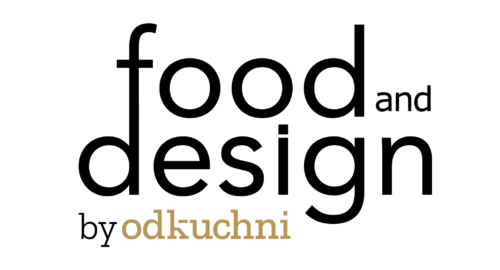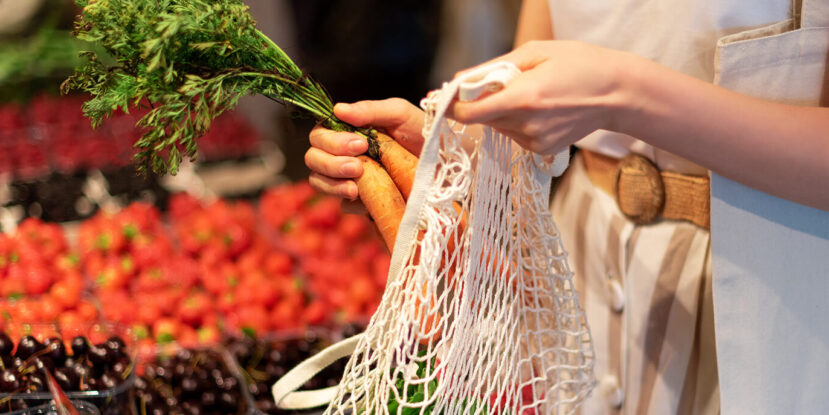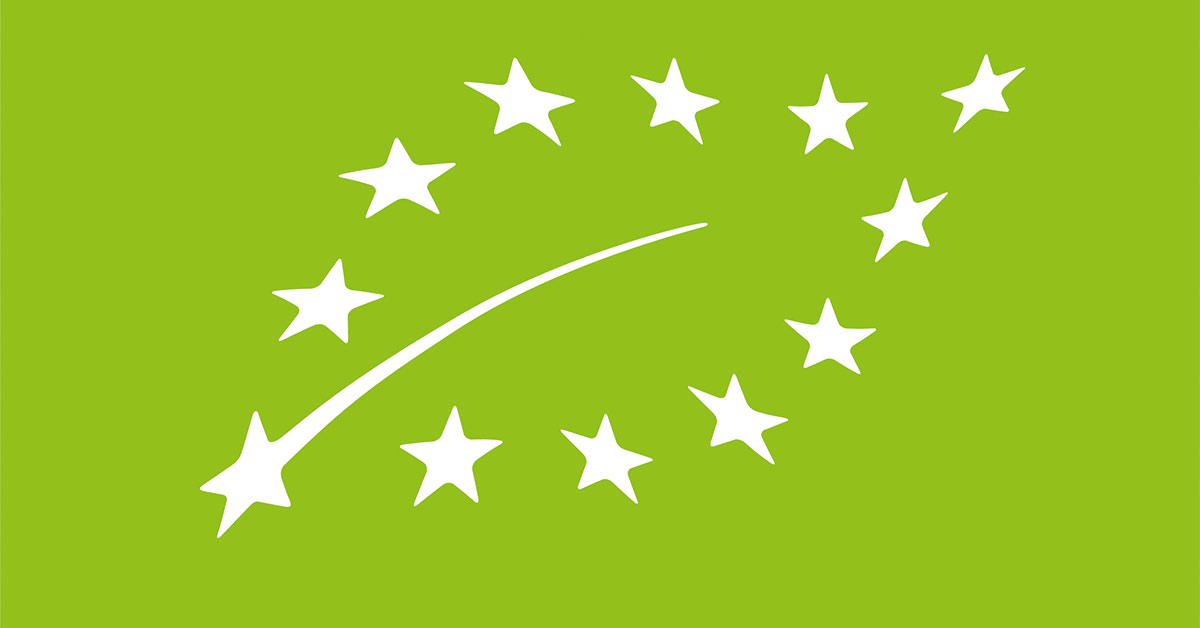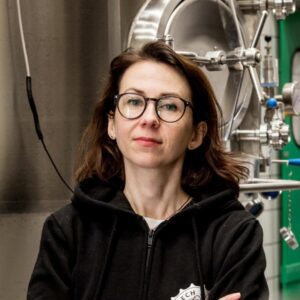Environmental protection is currently a leading trend in the food industry, as well as in many other areas of the economy. Unfortunately, very often pro-environmental statements of manufacturers do not go hand in hand with the facts and mislead ignorant consumers.
An analysis by the European Commission conducted in 2020 shows that more than 50% of environmental statements used by EU producers were inaccurate or unfounded. 40% of them were not confirmed in any way.
Greenwashing works very well on store shelves (i.e., creating a false impression of the product's impact on the environment). It is possible that thanks to new legal solutions introduced in the territory of the European Union, the situation will soon change for the better(more on this later in the article).
"Pro-ecological" tricks of food producers
On food labels, we often read that they are "eco-friendly", "natural", "climate neutral", "from clean lands". Environmental issues often also include packaging colors and different types of logos. The terms mentioned earlier are not mandatory for manufacturers, and in the vast majority of cases they do not hide any specific actions. There are no strict definitions and requirements.
Manufacturers, at the moment, use them quite freely and often without moderation. The same applies to the term "healthy food" or "natural food", which, in turn, is very often used by retailers (both large and small). What is healthy food? In this case, what are products from other shelves besides this "healthy" one? Is carrot juice natural because it has only one ingredient, or is it determined by a certain way of growing it? Or this and this? No one defines it, or everyone defines it in their own way.

Photo: Pinterest
Organic products, i.e.…
Among the most diverse "green" declarations on store shelves, we also find the terms "organic"," bio"," organic " accompanied by the characteristic green Eurolist logo. In this case, in accordance with the rules in force throughout the European Union (Regulation (EU) 2018/848 on organic production and labelling of organic products), we are dealing with goods that originated in the system of agriculture and organic processing in force throughout the European Union. These types of statements are followed by specific commitments and requirements-this is definitely not pure marketing.
photo. dziecisawazne.pl
Do the terms organic, organic, and bio mean the same thing?
We can answer this question very briefly: yes. The use of various terms for organic products is a result of the richness of customs and languages in the European Union. Before the community rules were created, different terms were used in different countries. Without going too deep into linguistic details, the best thing to remember is that: EKO=BIO = ORGANIC. The quality guarantee is the certificate of organic food products and the logo of the European Union.
How does the organic farming system work?
Formulations: organic, organic and bio (biological) refer to products that are produced from raw materials grown on certified organic farms. The relevant documents must also be submitted by processors and distributors. Organic food products are subject to certification and control throughout the entire production and distribution chain: from grain to the store shelf. Termination of certification at any stage means that the final product can no longer be considered an organic food product.
Organic products must be certified and marked with the EU logo for organic food (the so-called ecological product). A properly designed organic product label should include::
- organic food logo (EU ecology),
- designation of the certification body,
- information about the origin of ingredients (for example, RU agriculture, EU agriculture, non-EU agriculture, EU agriculture / non-EU agriculture).
And all other information needed for food products.
The organic farming system is an increase in the rigor that all food producers are subjected to. To bring an Eco-product to the market, the manufacturer must meet the requirements (for example, sanitary) applicable to all entrepreneurs in the food industry, and must also pass environmental certification. Organic food standards are the same in all European Union countries. Everyone introduces rules into their own legal system. This means that German or Spanish organic food meets exactly the same quality requirements as organic products produced in Spain.
What is environmental certification?
Certification of Polish organic producers is carried out by certification bodies. They have the appropriate authority of the Ministry of Agriculture. They perform both announced and unannounced checks. Documentation is checked on farms, but soil and crop samples are also taken for research. Distributors and manufacturers should m.in.. collect and submit documentation on the purchase and sale of raw materials to avoid mixing or replacing them. On organic farms, you can only use strictly defined rules, natural fertilizers, and plant protection products. The same applies to manufacturers and food additives and processing methods.
New EU rules will put in order the "ecological nonsense"
The EU is currently implementing the Green Claims Directive (WS. environmental statements). It requires producers to document that the environmental declarations they submit are covered in fact. Such documentation must be created in accordance with the Green Claims Directive. The new law will apply to text statements, as well as graphics and symbols. It is worth knowing that organic products will be excluded from these rules-there is a specific, reliable system behind declarations for this type of product.











 Junior specialist in Marketing Communications and PR.
Junior specialist in Marketing Communications and PR.


 He is a graduate of the University of Warsaw and the Main School of Agriculture. We have been in the HoReCa industry for more than 10 years. For many years, he has been associated with the Trip group, Sobienie Royal Golf and Country Club, and the Florentin Restaurant in Warsaw.
He is a graduate of the University of Warsaw and the Main School of Agriculture. We have been in the HoReCa industry for more than 10 years. For many years, he has been associated with the Trip group, Sobienie Royal Golf and Country Club, and the Florentin Restaurant in Warsaw. She graduated from the Faculty of Architecture of the Warsaw Technical University with a degree in Architecture for the Knowledge Society and Visual Communications at the Polytechnic University of Milan. A specialist in creating a mood. She has gained experience at home and abroad at numerous international seminars (Seville, Lisbon, Florence), fellowships at La Sapienza (Rome), etc. m.in. in Carmi e Ubertis and ADM Milano.
She graduated from the Faculty of Architecture of the Warsaw Technical University with a degree in Architecture for the Knowledge Society and Visual Communications at the Polytechnic University of Milan. A specialist in creating a mood. She has gained experience at home and abroad at numerous international seminars (Seville, Lisbon, Florence), fellowships at La Sapienza (Rome), etc. m.in. in Carmi e Ubertis and ADM Milano.








 A manager with many years of experience in the cosmetics, food, and children's industries. During his career, he was associated with such companies as: L'Oreal, Samsung, Danone-Nutricia, Unilever. During his professional life, he was responsible, among other things, for the development of e-commerce sales and content in Poland and the countries of Central and Eastern Europe.
A manager with many years of experience in the cosmetics, food, and children's industries. During his career, he was associated with such companies as: L'Oreal, Samsung, Danone-Nutricia, Unilever. During his professional life, he was responsible, among other things, for the development of e-commerce sales and content in Poland and the countries of Central and Eastern Europe. 

























































